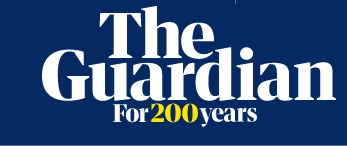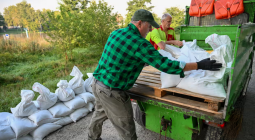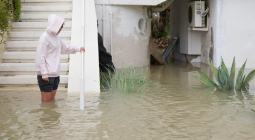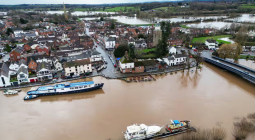More floods are coming to Britain, but you ought to know this: the system that should protect us is a scandal
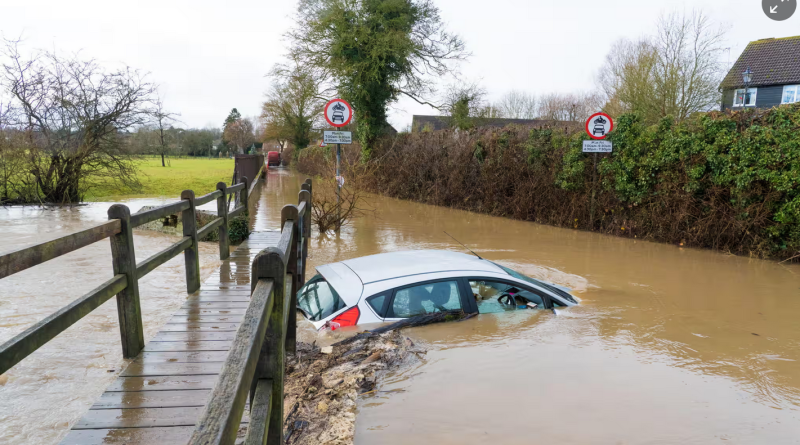
Labour’s first stage of government resembles a vast forensic excavation. As it works through the Conservatives’ midden of horrors, it discovers an ever greater legacy of underinvestment, neglect and corruption. However disappointing the new government’s compromises might be, we shouldn’t forget how overwhelming this task must feel.
So I’m sorry to expose yet another toxic stratum. It contains a series of stupendous failures in the governance of rural bodies, which, in the case I want to discuss, put human lives at risk.
Last week, the Guardian revealed alarming aspects of governance in several of England’s national parks, whose boards are starkly unrepresentative of the population and lack the expertise required to protect and restore the ecology of our national properties. This chimes with my experience: in some places, park boards appear to behave like private fiefdoms working on behalf of powerful local interests and against the public and environmental good. It’s as though Restore Trust, the opaquely funded reactionaries trying to take over the National Trust, had instead taken over the national parks.
But our national park boards look competent and diverse in comparison with another group of rural bodies, the internal drainage boards. You may not have heard of them, but if your home is threatened by floods, you may wish to have a word. Good luck with that.
Internal drainage boards (IDBs), of which there are 112 in England and Wales, are supposed to drain agricultural land and control floods. As most IDBs are dominated by rural landowners, they are pretty good at the first task. But the result of this drainage is often to speed water down the catchment towards towns and cities.
During flood events, there’s a trade-off: the water has to go somewhere. Either you retain it on land without homes and infrastructure, or you push it downstream, putting more valuable property, as well as large numbers of human lives, at risk. Effective flood management means slowing the flow – attenuating flood peaks by holding back water where it does the least harm, and releasing it gradually. In some cases (such as the Somerset Levels) the most effective option would be to stop draining and farming the land altogether, and allow it to revert to marsh, greatly reducing costs while restoring wildlife habitats. This is what the Netherlands has done, to great effect, with its Room for the River programme. But the IDBs tend to prioritise their historical function, draining farmland, above all else.
In 2017, the National Audit Office (NAO) investigated the IDBs and found a spate of problems. Astonishingly, there is no statutory governance standard for IDBs. Ministers have no power over them: they cannot even demand that their financial management is sound. Instead, the boards report to their own membership organisation, the Association of Drainage Authorities – a classic case of marking your own homework.
Environmental protection is crucial to the prevention of floods, as mismanaged catchments speed water to the nearest urban pinch point. The IDBs should also protect and restore the nature sites they manage. But the NAO found that 85% of IDBs had no board members with relevant environmental expertise, and 76% had no environmental experts on their staff. Most provided their board members no training of any kind.
Most of their funding is provided by local authorities, and some councils are being driven close to bankruptcy by the pumping fees they must pay to boards as climate breakdown intensifies floods. Three district councils in Lincolnshire are now handing more than 50% of their council tax receipts to IDBs – East Lindsey council gives them an astonishing 65%. Other services are being cut to raise these levies. Yet, as the NAO report states, “local authorities have no legal powers to directly influence IDBs’ governance and administration”. So how can they ensure the money is well spent?
There are, as the NAO remarked, no effective mechanisms for making complaints or holding these organisations to account, or for resolving conflicts of interest. Board members, it found, may be tempted to make “decisions in the interests of their own land or business”. Subsequent government research found that the recruitment process for board members “is often quite informal” and “there is a very low turnover rate” – both major red flags for anyone concerned about public governance.
Over the years, I have been contacted by whistleblowers who have worked for some of the IDBs. They have told me disturbing stories of seats on the boards passed from chum to chum and father to son, of an old boys’ club mentality, of expensive cars and lavish jaunts, of gross sexism and racism, and of brutal environmental vandalism as they reduce lovely chalk streams to featureless drains to race water off board members’ land. A rare audit of an IDB, in south Wales, discovered that the board used public funds unlawfully, taking family members on what it called “inspection visits” to, ahem, Venice, the Giant’s Causeway in Northern Ireland and a distillery. The chief officer of the drainage board was involved in proposing his own pay, apparently graciously deciding to raise it by 50% in four years.
In short, the IDBs tend to be dominated by self-serving patricians, who may be inclined to defend their own land and that of their friends while failing to uphold the wider public interest. The boards, based on a model established by the 13th century, are, like several aspects of rural governance in the UK, feudal in character and practice. Democracy arrives late to the countryside, in some cases not at all.
he NAO review was among the most damning reports I’ve ever read about public bodies. The response of the Conservative government? Good question. I can find no acknowledgment by any minister that the report was even published, let alone a serious attempt to act on its findings.
Last week, the new government launched its flood resilience taskforce: a perfect opportunity to address this debacle. But the National Farmers’ Union, that ball and chain impeding all forms of rural progress, is clamped around the taskforce’s ankle, so change is likely to be slow and frustrating. The NFU protects the feudal interest against all comers.
So now, as devastating floods hit central Europe and as the Met Office predicts floods in the UK this autumn, here is yet another pressing task for an overworked government. The internal drainage boards are beyond reform. They urgently need to be replaced with accountable, democratic bodies. Sorry – but I just operate the digger.
